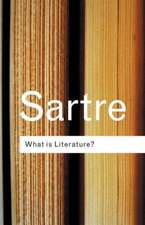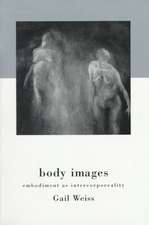Violence and Phenomenology: Studies in Philosophy
Autor James Dodden Limba Engleză Paperback – 11 dec 2013
| Toate formatele și edițiile | Preț | Express |
|---|---|---|
| Paperback (1) | 481.58 lei 6-8 săpt. | |
| Taylor & Francis – 11 dec 2013 | 481.58 lei 6-8 săpt. | |
| Hardback (1) | 1056.71 lei 6-8 săpt. | |
| Taylor & Francis – 18 mai 2009 | 1056.71 lei 6-8 săpt. |
Din seria Studies in Philosophy
- 9%
 Preț: 1004.96 lei
Preț: 1004.96 lei - 9%
 Preț: 1037.84 lei
Preț: 1037.84 lei - 19%
 Preț: 478.18 lei
Preț: 478.18 lei -
 Preț: 487.86 lei
Preț: 487.86 lei -
 Preț: 482.74 lei
Preț: 482.74 lei - 18%
 Preț: 1056.28 lei
Preț: 1056.28 lei - 18%
 Preț: 949.78 lei
Preț: 949.78 lei -
 Preț: 478.71 lei
Preț: 478.71 lei -
 Preț: 489.99 lei
Preț: 489.99 lei -
 Preț: 480.28 lei
Preț: 480.28 lei -
 Preț: 481.58 lei
Preț: 481.58 lei -
 Preț: 488.12 lei
Preț: 488.12 lei -
 Preț: 491.68 lei
Preț: 491.68 lei -
 Preț: 436.75 lei
Preț: 436.75 lei - 18%
 Preț: 1056.28 lei
Preț: 1056.28 lei - 18%
 Preț: 1056.63 lei
Preț: 1056.63 lei -
 Preț: 484.47 lei
Preț: 484.47 lei -
 Preț: 479.67 lei
Preț: 479.67 lei -
 Preț: 488.33 lei
Preț: 488.33 lei -
 Preț: 485.24 lei
Preț: 485.24 lei - 31%
 Preț: 763.39 lei
Preț: 763.39 lei -
 Preț: 482.35 lei
Preț: 482.35 lei -
 Preț: 434.84 lei
Preț: 434.84 lei -
 Preț: 482.35 lei
Preț: 482.35 lei -
 Preț: 480.07 lei
Preț: 480.07 lei -
 Preț: 444.23 lei
Preț: 444.23 lei - 18%
 Preț: 1106.81 lei
Preț: 1106.81 lei -
 Preț: 465.69 lei
Preț: 465.69 lei - 18%
 Preț: 1054.71 lei
Preț: 1054.71 lei - 18%
 Preț: 1056.71 lei
Preț: 1056.71 lei -
 Preț: 480.06 lei
Preț: 480.06 lei -
 Preț: 356.18 lei
Preț: 356.18 lei -
 Preț: 488.33 lei
Preț: 488.33 lei -
 Preț: 223.99 lei
Preț: 223.99 lei -
 Preț: 444.93 lei
Preț: 444.93 lei
Preț: 481.58 lei
Nou
Puncte Express: 722
Preț estimativ în valută:
92.18€ • 100.16$ • 77.48£
92.18€ • 100.16$ • 77.48£
Carte tipărită la comandă
Livrare economică 21 aprilie-05 mai
Preluare comenzi: 021 569.72.76
Specificații
ISBN-13: 9780415851961
ISBN-10: 0415851963
Pagini: 190
Dimensiuni: 152 x 229 mm
Greutate: 0.26 kg
Ediția:1
Editura: Taylor & Francis
Colecția Routledge
Seria Studies in Philosophy
Locul publicării:Oxford, United Kingdom
ISBN-10: 0415851963
Pagini: 190
Dimensiuni: 152 x 229 mm
Greutate: 0.26 kg
Ediția:1
Editura: Taylor & Francis
Colecția Routledge
Seria Studies in Philosophy
Locul publicării:Oxford, United Kingdom
Public țintă
Postgraduate and UndergraduateCuprins
Acknowledgments
Introduction: Reflections on Violence
Chapter One: Schmitt’s Challenge (Clausewitz, Schmitt)
Chapter Two: On Violence (Arendt, Sartre)
Chapter Three: On the Line (Jünger, Heidegger)
Chapter Four: Violence and Responsibility (Patocka)
Conclusion: Six Problems of Violence
Notes
Bibliography
Index
Introduction: Reflections on Violence
Chapter One: Schmitt’s Challenge (Clausewitz, Schmitt)
Chapter Two: On Violence (Arendt, Sartre)
Chapter Three: On the Line (Jünger, Heidegger)
Chapter Four: Violence and Responsibility (Patocka)
Conclusion: Six Problems of Violence
Notes
Bibliography
Index
Notă biografică
James Dodd is Assistant Professor of Philosophy at the New School for Social Research, New York, USA.
Descriere
This book pursues the problem of whether violence can be understood to be constitutive of its own sense or meaning, as opposed to being merely instrumental. The central figures considered include Clausewitz, Schmitt, Arendt, Sartre, Jünger, Heidegger, and Patocka.














